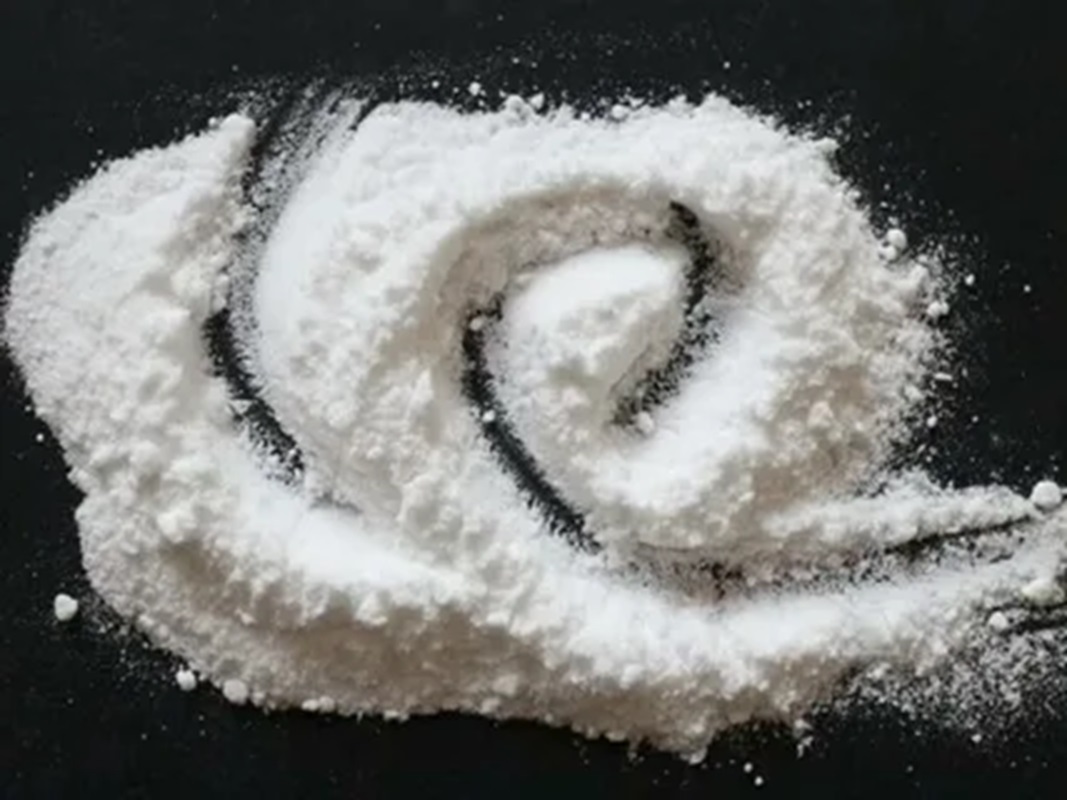We unleash your business potential by maximize the business innovation.
Send EmailCalcium Fluoride, Calcium Difluoride, Fluorspar, Fluorite, 7789-75-5
Calcium Fluoride (CaF₂):
1. General Information and Identification
-
Molecular Formula: CaF₂
-
Chemical Name: Calcium Fluoride
-
Other Names: Calcium Difluoride, Fluorspar, Fluorite
-
CAS Number: 7789-75-5
-
Molecular Weight: 78.07 g/mol
In nature, it is found as the mineral fluorite (also called fluorspar). This mineral is known for its beautiful and varied colors (purple, blue, green, yellow, colorless, etc.), which are caused by impurities or structural defects in the crystal lattice.
2. Chemical Structure and Properties
-
Crystal Structure (Fluorite Structure): CaF₂ crystallizes in a famous arrangement known as the "fluorite structure." In this cubic lattice, calcium ions (Ca²⁺) are arranged in a face-centered cubic pattern, and fluoride ions (F⁻) occupy all the tetrahedral holes. This specific structure contributes to its hardness and high melting point.
-
Molecular Shape: While it exists as an ionic lattice in its solid state, in the gas phase, it forms a linear molecule (F-Ca-F).
-
Chemical Stability: It is considered a chemically stable and relatively inert compound with weak oxidizing and reducing properties. It is not hygroscopic, meaning it does not readily absorb moisture from the air.
3. Production Methods
-
Mining (Primary Source): The primary source of calcium fluoride is the mining of fluorspar from open-pit or underground mines. The ore is crushed and processed (often through flotation) to separate the CaF₂ from other minerals, producing concentrates of various purities for different industrial uses.
-
Chemical Synthesis: High-purity CaF₂ can be produced synthetically. This is typically done by reacting a soluble calcium salt (like calcium chloride, CaCl₂) with a soluble fluoride salt (like sodium fluoride, NaF) in an aqueous solution, causing CaF₂ to precipitate out.
-
CaCl₂ (aq) + 2NaF (aq) → CaF₂ (s) + 2NaCl (aq)
-
-
Reaction of Acids: It can also be produced by reacting calcium carbonate (limestone) with hydrofluoric acid. However, this method is not economically viable on a large scale because hydrofluoric acid is generally more valuable than the calcium fluoride it would produce.
4. Physical and Chemical Properties
-
Appearance: It typically appears as a white, odorless powder or in granular form. The natural mineral fluorite can be transparent or translucent in a variety of colors.
-
Melting Point: 1402 °C (2556 °F) - This high point indicates strong ionic bonds.
-
Boiling Point: 2500 °C (4532 °F)
-
Density: 3.18 g/cm³ at 25 °C, making it significantly denser than water.
-
Solubility:
-
In Water: It has very low solubility in water (approximately 16 mg/L at 20 °C).
-
In Acids: It dissolves in concentrated acids like hydrochloric acid (HCl), sulfuric acid (H₂SO₄), and nitric acid (HNO₃). The reaction with sulfuric acid is particularly important industrially for producing hydrogen fluoride (HF).
-
In Ammonium Salts: It is soluble in solutions of ammonium salts, such as ammonium chloride (NH₄Cl).
-
5. Applications and Uses
The unique properties of CaF₂ make it valuable in a wide range of fields:
-
Production of Hydrofluoric Acid (HF): This is its most important industrial use. CaF₂ is reacted with sulfuric acid to produce hydrogen fluoride (HF) and calcium sulfate (gypsum).
-
CaF₂ (s) + H₂SO₄ (l) → CaSO₄ (s) + 2HF (g) -
HF is then used to manufacture refrigerants, fluoropolymers (like Teflon), pharmaceuticals, and aluminum.
-
-
Oral Care and Dentistry: CaF₂ is a common ingredient in toothpaste and other oral hygiene products. When applied to teeth, it forms a layer that helps prevent the formation of dental plaque (tartar) and makes tooth enamel more resistant to acid attacks from bacteria, thus preventing cavities.
-
Metallurgy:
-
Flux in Steelmaking: It is used as a flux in steel production to lower the melting point of slag and improve its fluidity, allowing for easier removal of impurities.
-
Protection in Aluminum Smelting: In aluminum casting, it is used as a component in cover fluxes to protect molten aluminum alloys from oxidation and to reduce hydrogen gas pickup, which can cause porosity.
-
-
Optics (A Critical High-Tech Application): Due to its exceptional transparency over a wide range of wavelengths (from ultraviolet to infrared), high-quality synthetic calcium fluoride crystals are used to manufacture:
-
Lenses and prisms for ultraviolet and infrared spectroscopy.
-
Windows and lenses for excimer lasers used in semiconductor photolithography and eye surgery.
-
Components for thermal imaging cameras and other infrared devices.
-
-
Glass and Ceramics: It is used as an opacifier to produce opaque or milky glass. It is also added to glazes and enamels.
-
Other Applications:
-
Wood Preservation: Acts as a catalyst in the production of certain wood preservatives.
-
Water Fluoridation: Used to adjust the fluoride level in public drinking water supplies to promote dental health.
-
Silicon Purification: Employed in thermal plasma processes for purifying silicon.
-
Advanced Manufacturing: Utilized in novel methods for producing next-generation mid-infrared micro-resonators.
-
